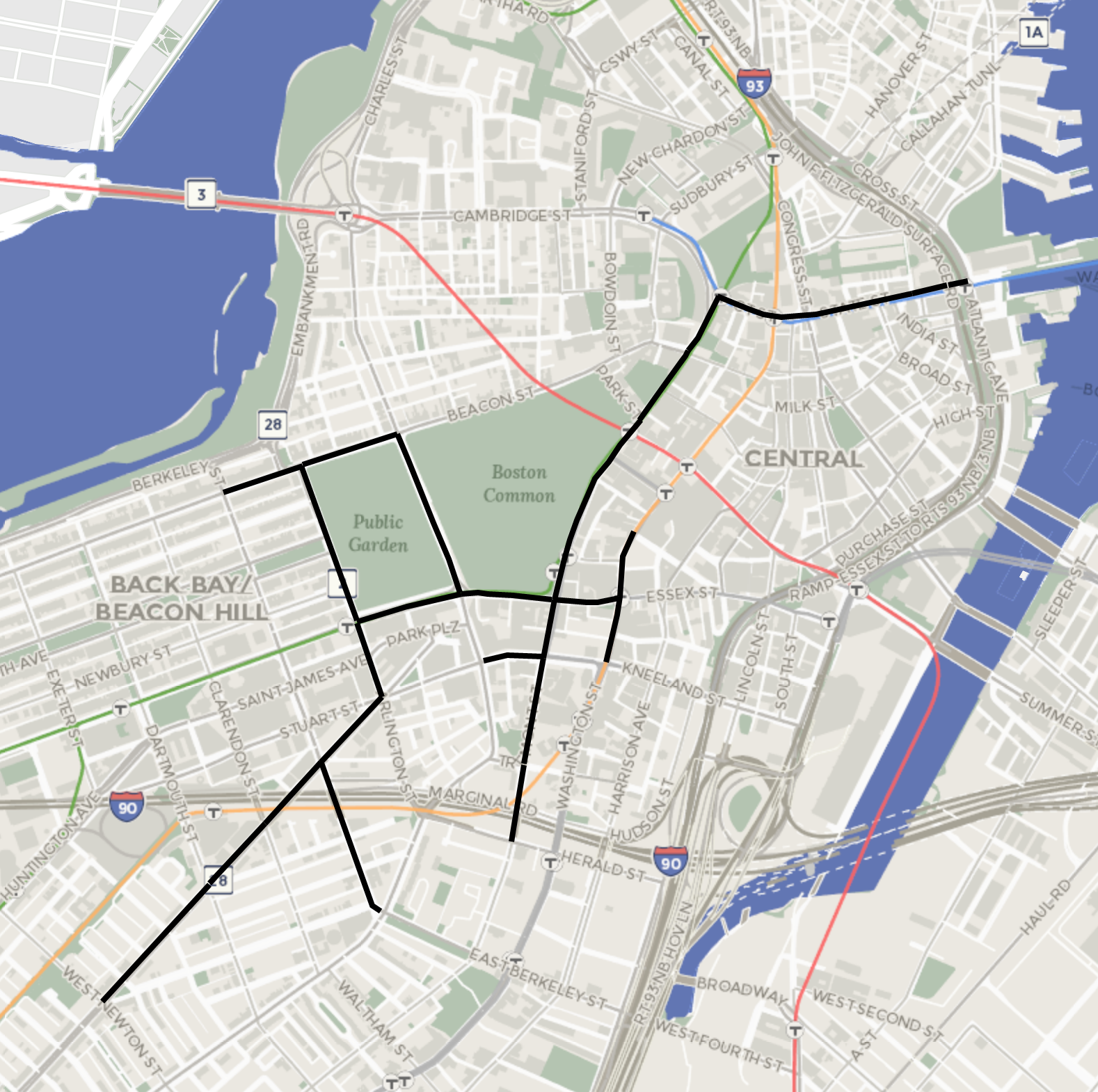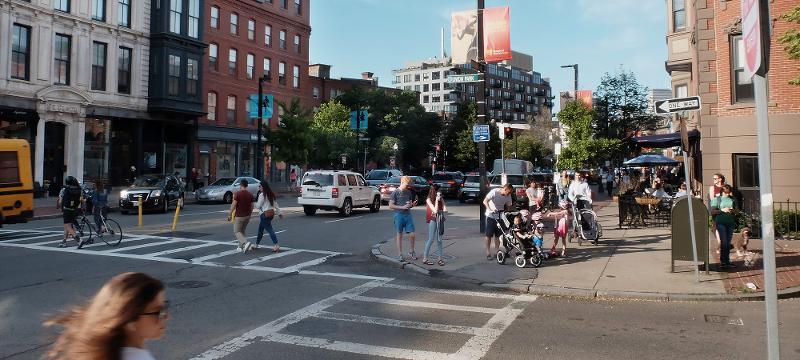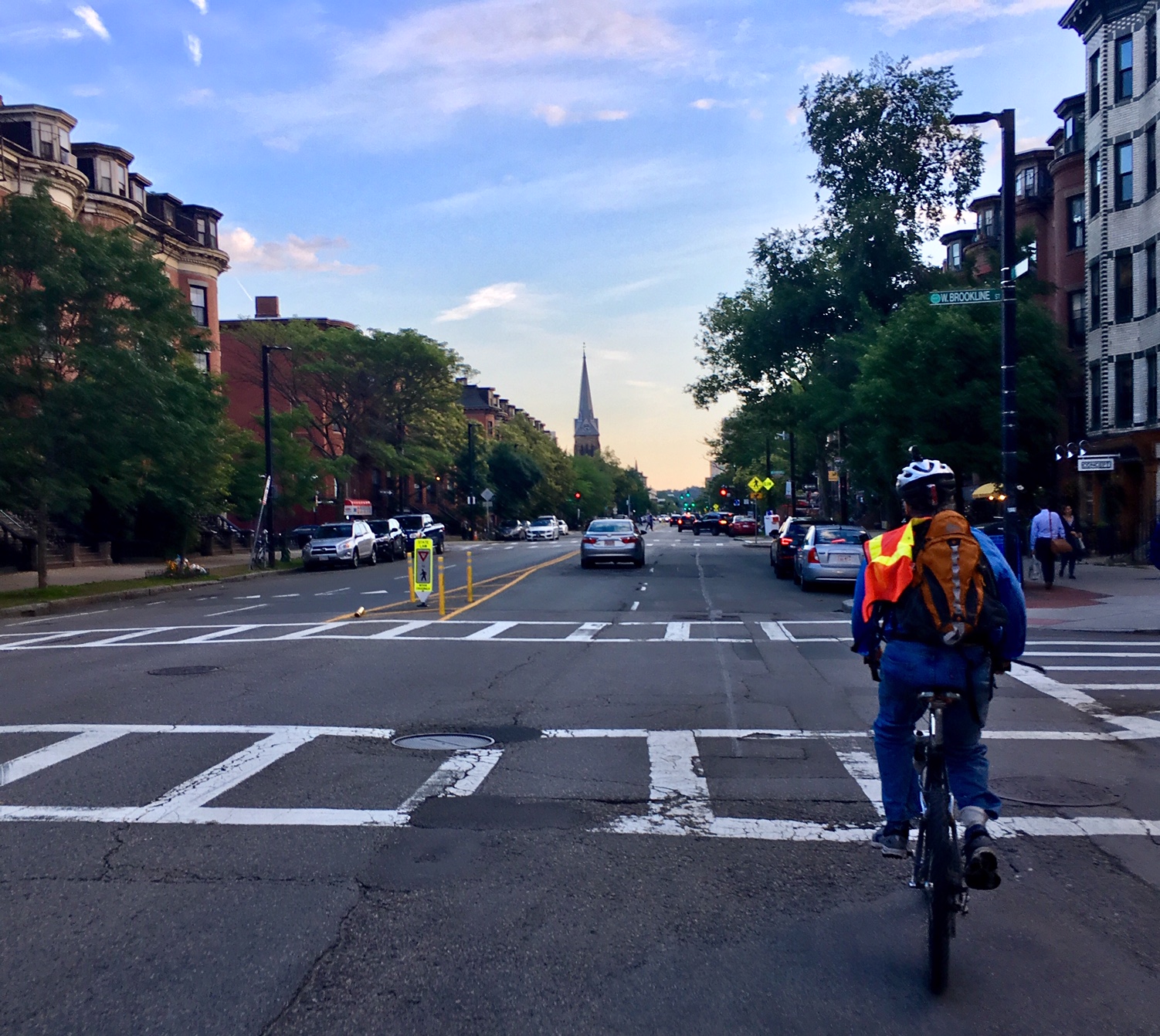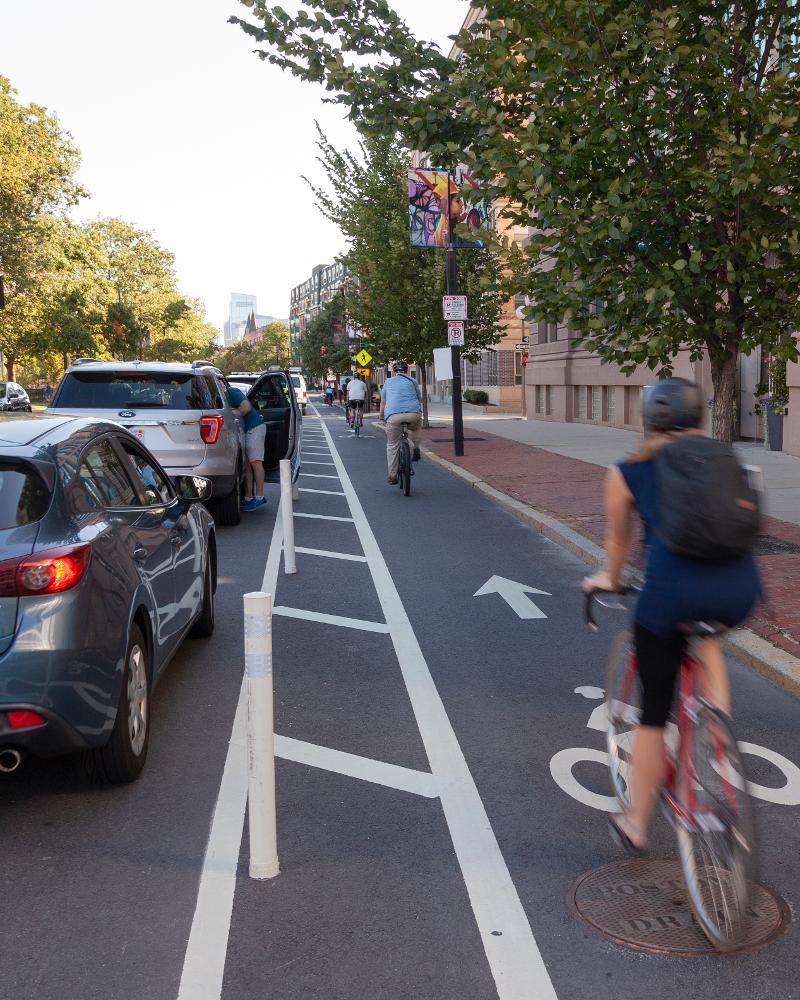JeffDowntown
Senior Member
- Joined
- May 28, 2007
- Messages
- 4,797
- Reaction score
- 3,665
That will certainly help.Flexposts are going up in the next week presuming no delays
That will certainly help.Flexposts are going up in the next week presuming no delays
Boston is in the process of installing separated bike lanes Downtown. Looks like a parking protected lane on Stuart St and a separated lane on Washington St (which also gets a bus lane).
^ The Tremont Street design improvements seem really thoughtful!

Once you get over the pike Tremont really doesn't connect anywhere useful, it becomes a lot of one way roads and badly designed intersections. And then Shawmut basically becomes Tremont at a certain point.While the Tremont improvements seem to be well thought out, I wish that the improvements for COVID created a more fluid connection than what's pictured on the map. How hard could it be to route it over Tremont instead of Shawmut?

Mayor Walsh Announces Details of New 'Healthy Streets' Initiative - Streetsblog Massachusetts
The initial plans include a network of new protected bike lanes across downtown Boston and around the Public Garden, expanded bus stop waiting areas, and processes to let restaurants expand their outdoor seating areas on sidewalks and on-street parking lanes.mass.streetsblog.org
While the Tremont improvements seem to be well thought out, I wish that the improvements for COVID created a more fluid connection than what's pictured on the map. How hard could it be to route it over Tremont instead of Shawmut?

Mayor Walsh Announces Details of New 'Healthy Streets' Initiative - Streetsblog Massachusetts
The initial plans include a network of new protected bike lanes across downtown Boston and around the Public Garden, expanded bus stop waiting areas, and processes to let restaurants expand their outdoor seating areas on sidewalks and on-street parking lanes.mass.streetsblog.org
Once you get over the pike Tremont really doesn't connect anywhere useful, it becomes a lot of one way roads and badly designed intersections. And then Shawmut basically becomes Tremont at a certain point.


Shawmut does not have the bus traffic, and does not have the pedestrian crossing incentives for the rework. If you read the study, the bike portion is only part of the motivation. If you want this to happen, it needs to happen on Tremont, where multiple constituencies benefit. It is not just about the bike route. That's how politics work.Shawmut is a much quieter street than Tremont in general and it's only a block parallel in the South End. It makes sense for it to be a cycling corridor where folks can easily divert to Tremont or Washington as needed.
Yes I'm well aware of that project, I was talking about Tremont St North of the Pike.Tremont St is being redone later year. Adding protected bike lanes and going from 4 lanes to 2 (1 lane each direction). The final plans and open house are available here:

Making Tremont Street Safer
Tremont Street is a vibrant anchor for Boston's walkable South End. But, it's not as safe as it could be for people walking.storymaps.arcgis.com

Physically Protected Bike Lanes to Replace Car Lanes on Tremont Street - Streetsblog Massachusetts
The City of Boston Transportation Department expects to solicit construction bids later this year for physically protected bike lanes, new bus stops, and safer crosswalks on Tremont Street through the South End.mass.streetsblog.org
I'm impressed, but I just happen to ride in areas that have seen some great improvements. Columbus Ave from Ruggles to Mass Ave was a night and day improvement, the bike lanes on Kneeland and now Stuart St in Chinatown have changed my entire commute, Longfellow bridge is great, as is the North End path, but I only really go on those for leisure. Mass Ave has seen some great changes over the past few years and with more hopefully to come this fall, If we can work on the connectivity between all these great sections then I think Boston will have some best in nation bike infrastructure. Does that live up to worldwide examples? No absolutely not but for America I think we're doing pretty damn well.In general, how would people who ride bikes in the city rate the upgrades, additions and overall bike infrastructure the city has done over the last decade?
C+. We went from nearly nothing a decade ago to a grab bag of options, most minor, with a few fundamental improvements (Cycletrack around North End/Downtown, protected lanes on the bridges). If you compare what NYC has done or, if you're getting really crazy, a place like Montreal, we are still kowtowing to parking needs over bike infrastructure. And there's little appetite for partnering with Camberville/Brookline on a common and funded strategy.In general, how would people who ride bikes in the city rate the upgrades, additions and overall bike infrastructure the city has done over the last decade?

In general, how would people who ride bikes in the city rate the upgrades, additions and overall bike infrastructure the city has done over the last decade?
